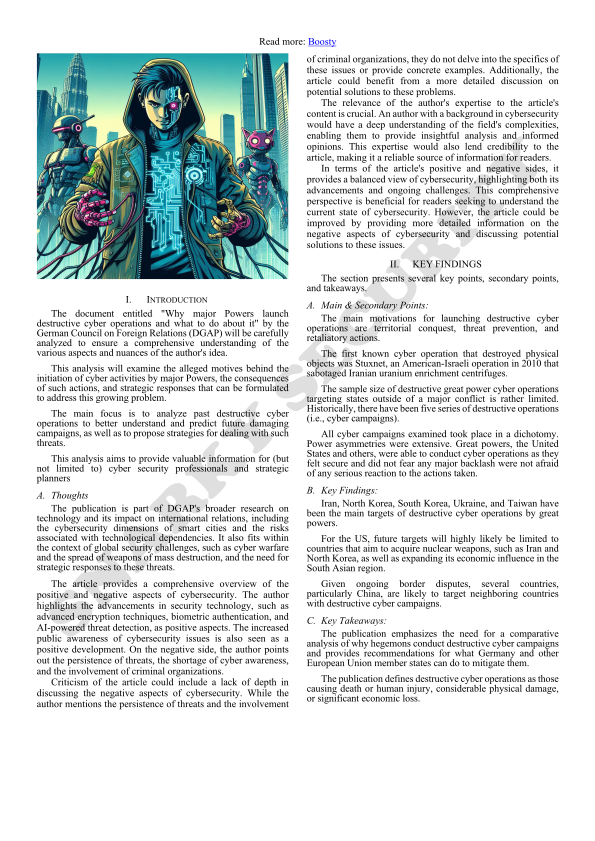Why Great Powers Launch Destructive Cyber Operations and What to Do About It

Here we have the German Council on Foreign Relations (DGAP), those paragons of geopolitical insight, serving up a dish of the obvious with a side of «tell me something I don’t know» in their publication «Why Great Powers Launch Destructive Cyber Operations and What to Do About It.» It’s a riveting tale of how big, bad countries flex their digital muscles to wreak havoc on the less fortunate. And what’s their groundbreaking solution? Analyze, predict, and strategize. Groundbreaking, indeed.
The whole DGAP article looks like a story about a midlife crisis: with the cybersecurity aspects of smart cities and the existential fear of technological addiction. To enhance the effect, they link cyberwarfare and the proliferation of weapons of mass destruction and here we learn that great powers launch cyberattacks for the same reasons they do anything else: power, money, other things everyone loves (obviously, the author writes knowledgeably). And of course, the author decided to hype and remind about the role of machine learning in cyber operations.
Now, let’s dive into the article’s «comprehensive» overview of cybersecurity. The author points out the good (shiny new tech), the bad (those pesky, persistent threats), and the ugly (criminal organizations with more ambition than a Silicon Valley startup). But when it comes to the negatives, the author tiptoes around like they’re trying not to wake a sleeping baby.
So there you have it, a masterclass in stating the obvious with a dash of sarcasm and a sprinkle of post-irony. Remember, when it comes to cyber warfare, it’s not about the size of your digital arsenal, but how you use it. Or so they say.
Unpacking in more detail


